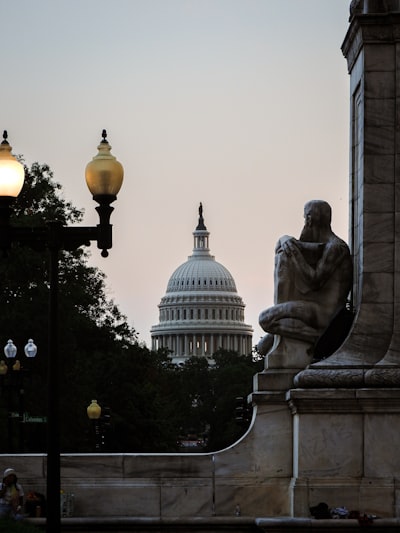Summary
The Senate is locked in a marathon voting session (a 'vote-a-rama'), debating President Donald Trump’s expansive domestic policy bill. The legislation, shaped by intense partisan negotiation, proposes sweeping tax cuts, boosts Pentagon and border security funding, and delivers historic cuts to social safety nets, most notably Medicaid. The session, stretching overnight as deadline pressures mount, features Republicans seeking last-minute tweaks and Democrats pushing politically challenging votes. Notably, the bill would slash federal Medicaid support by $930 billion over a decade and introduce work requirements for many adult recipients. According to the Congressional Budget Office, this would leave nearly 12 million more Americans uninsured by 2034. Concerns also swirl around the fiscal impact: while GOP leaders favor an accounting method that downplays its cost, the CBO's traditional approach puts the bill’s deficit increase at $3.3 trillion over ten years.
Analysis
This legislative drama spotlights sharp ideological divides and the evolving tactics of Congressional lawmaking. The bill is an overt expression of contemporary Republican priorities: tax relief for individuals and corporations, increases for defense and border security, and downsizing of federal entitlements. The overnight session, filled with symbolic and strategic amendments, forces senators to take potentially difficult stances in full public view — ammunition for future campaigns.
Both political strategy and substantive policy are at play. Republicans frame the bill as pro-growth and fiscally responsible, leaning on an alternative "current policy baseline" to minimize its apparent deficit impact — a notable shift with likely long-term implications for how tax legislation is scored and debated. Democrats counter with warnings of social harm, zeroing in on the millions projected to lose insurance and arguing that the package targets the vulnerable while shielding the wealthy and powerful.
There is also open GOP discomfort: Senators like Lisa Murkowski and Susan Collins have broken ranks on key amendments, highlighting rifts within the party. The leadership’s struggle to hold members together underscores both the contentiousness of the cuts (especially to Medicaid and food aid) and the regional variation in impact. Procedural maneuvers — like reading the full bill aloud to slow the process — reflect the stakes and the limits of minority party power.
Discussion
This moment matters for several reasons. First, the fate of Medicaid – which serves more than 71 million Americans – is a barometer of national values around public health, poverty, and collective responsibility. The cuts are not just accounting; they represent a reconceptualization of the federal role in social welfare. Second, the battle over fiscal scoring methods, while arcane, could reshape the trajectory of tax and spending bills for years to come, enabling riskier legislative gambits by blurring the real cost of policy choices.
The Senate spectacle is a vivid display of both the virtues and vices of American democracy: transparency and accountability on one hand; brinkmanship and political theater on the other. It raises urgent questions: What constitutes fiscal responsibility? Can a society justify escalating military and border expenditures while diminishing health coverage for millions? How much of the bill's apparent generosity (via tax cuts) is sustainable — or illusory — when paired with long-term deficit projections?
Looking beyond the vote, the bill’s long-term legacy would extend well past Fourth of July deadlines and election cycles. If passed, it could alter the landscape of social policy for a generation. It would also help define the Trump-era Republican Party, crystallizing its ideological commitments and its appetite for high-stakes legislative risk. The country will be living with the consequences — fiscal, social, and political — for years to come.

Comments
No comments yet. Be the first to comment!